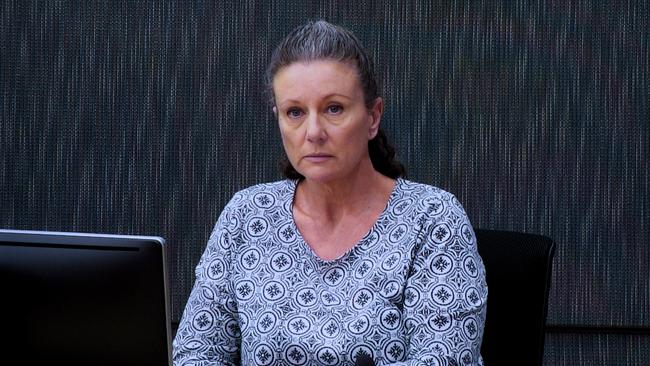Kathleen Folbigg will decline to give evidence in the inquiry which could exonerate her
Convicted child killer Kathleen Folbigg will not give evidence at the new inquiry which could overturn her conviction for murdering her four infant children more than two decades ago.

Convicted child killer Kathleen Folbigg will decline to give evidence at the new inquiry that could overturn her conviction for murdering her four infant children more than two decades ago.
Folbigg’s barrister, Gregory Woods QC, revealed the shock move at a directions hearing on Tuesday, which laid out the scope of the upcoming inquiry examining both genetic and psychological evidence, on the grounds that she has “already given evidence a number of times”.
Folbigg gave evidence to a 2019 inquiry into her case across three days of gruelling and at times aggressive cross-examination over a series of diary entries that formed an integral part of the prosecution’s original case against her.
She did not give evidence during her original trial, which saw her convicted of murdering her children Sarah, Patrick and Laura and the manslaughter of her firstborn, Caleb, in 2003, and later expressed regret at not speaking in her defence.
Dr Woods said Folbigg had given ample evidence to the 2019 inquiry and her legal team did not believe she needed to give further evidence. “I should say on that point, our position on Mrs Folbigg giving any further evidence in the proceedings is, she’s already given evidence a number of times and our position is unless there is some extraordinary reason otherwise, we would rely on material that is already before the inquiry,” he told the hearing.
Former chief justice of the NSW Supreme Court Tom Bathurst QC, who has been appointed to conduct the inquiry, said “no adverse inference is to be drawn from the failure to give evidence”.
Folbigg could also be asked to undergo psychological assessment once the experts have been selected, though her participation could not be compelled, DDP barrister Dean Jordan told the hearing.
“We submit to your honour once the relevant psychiatric and psychological experts are identified and we would submit the appropriately balanced range of such witnesses that there should be opportunities – subject, of course, to Mrs Folbigg's consent – for each of those remaining experts to consult,” Mr Jordan said.
Mr Bathurst confirmed the hearing would be divided into two tranches that would see the new genetic and cardiac evidence that Folbigg and her daughters carried a lethal mutation called CALM2 probed first, with psychological evidence gleaned from her diaries examined in the second leg.
He also revealed the inquiry would examine the conduct of NSW police Detective Bernie Ryan, whose investigation was guided by the now disproved concept of Meadow’s Law, named after British paediatrician Roy Meadow. “So far as the conduct of Detective Ryan is concerned, the complaint seems primarily to be that he targeted Ms Folbigg on an assumption based on what is colloquially known as Meadow’s Law,” he said.
“That is the belief one unexplained death of an infant should be called SIDS, a second should be undetermined and the third should be called murder, until it is proven not to be.
“This thinking has now been discredited.”
One notable witness from the trial was NSW pathologist Allan Cala, who did an autopsy on Laura and found evidence of myocarditis but gave her cause of death as “undetermined”. His lawyer appeared on his behalf on Tuesday and he was granted leave to appear. The inquiry will commence on November 14.



